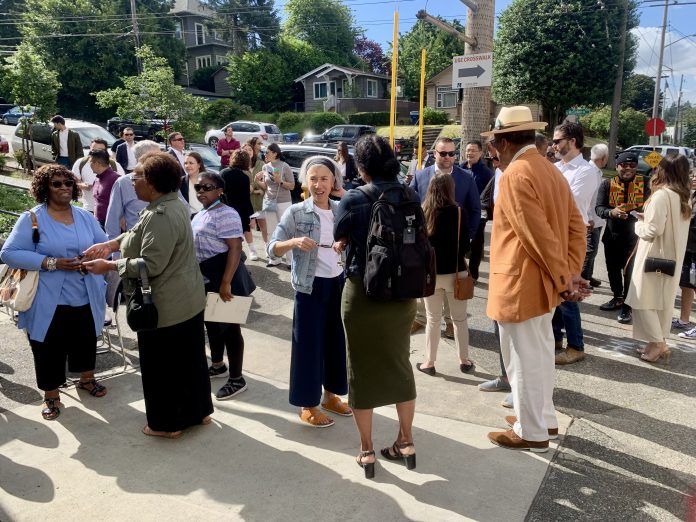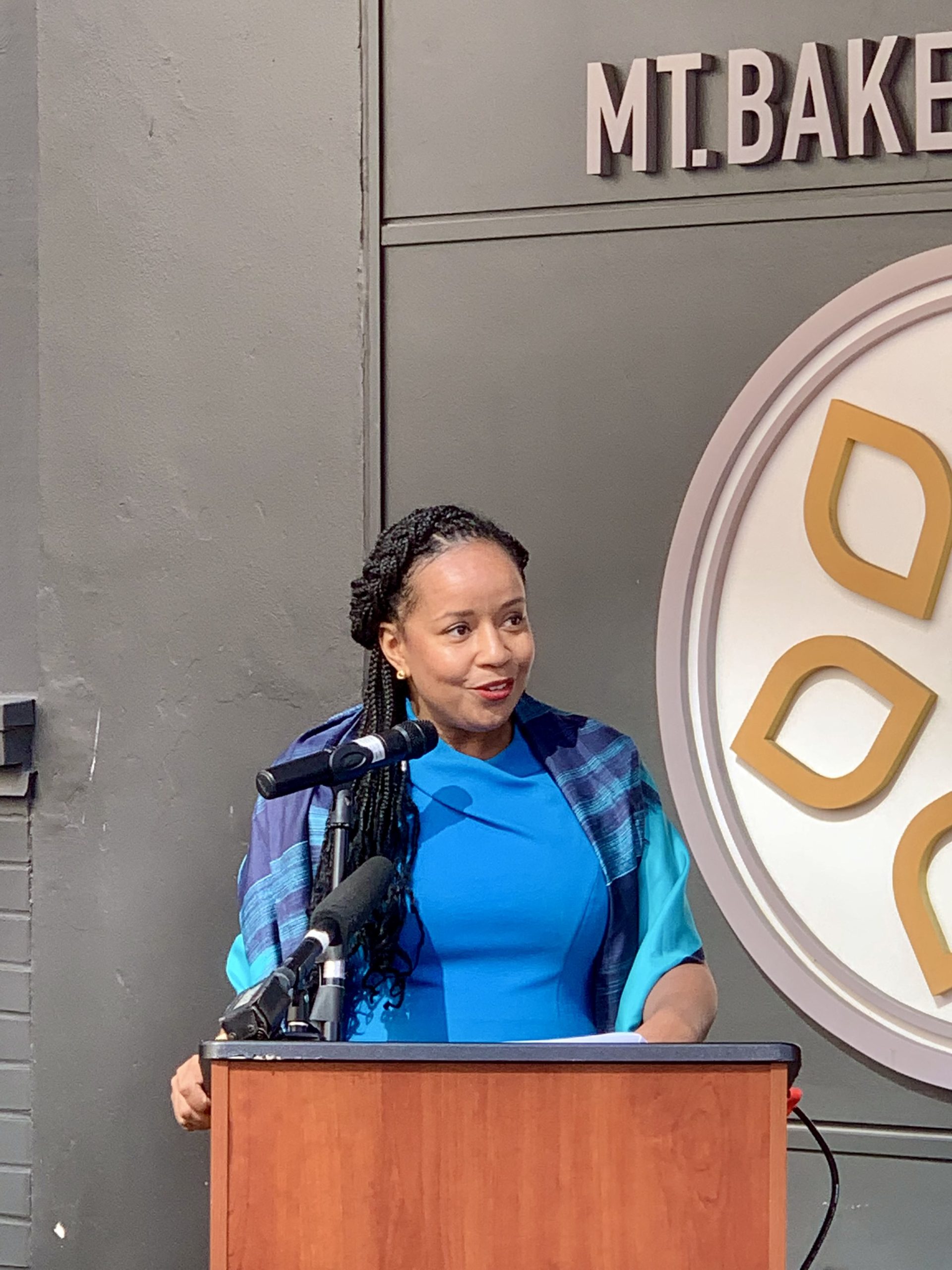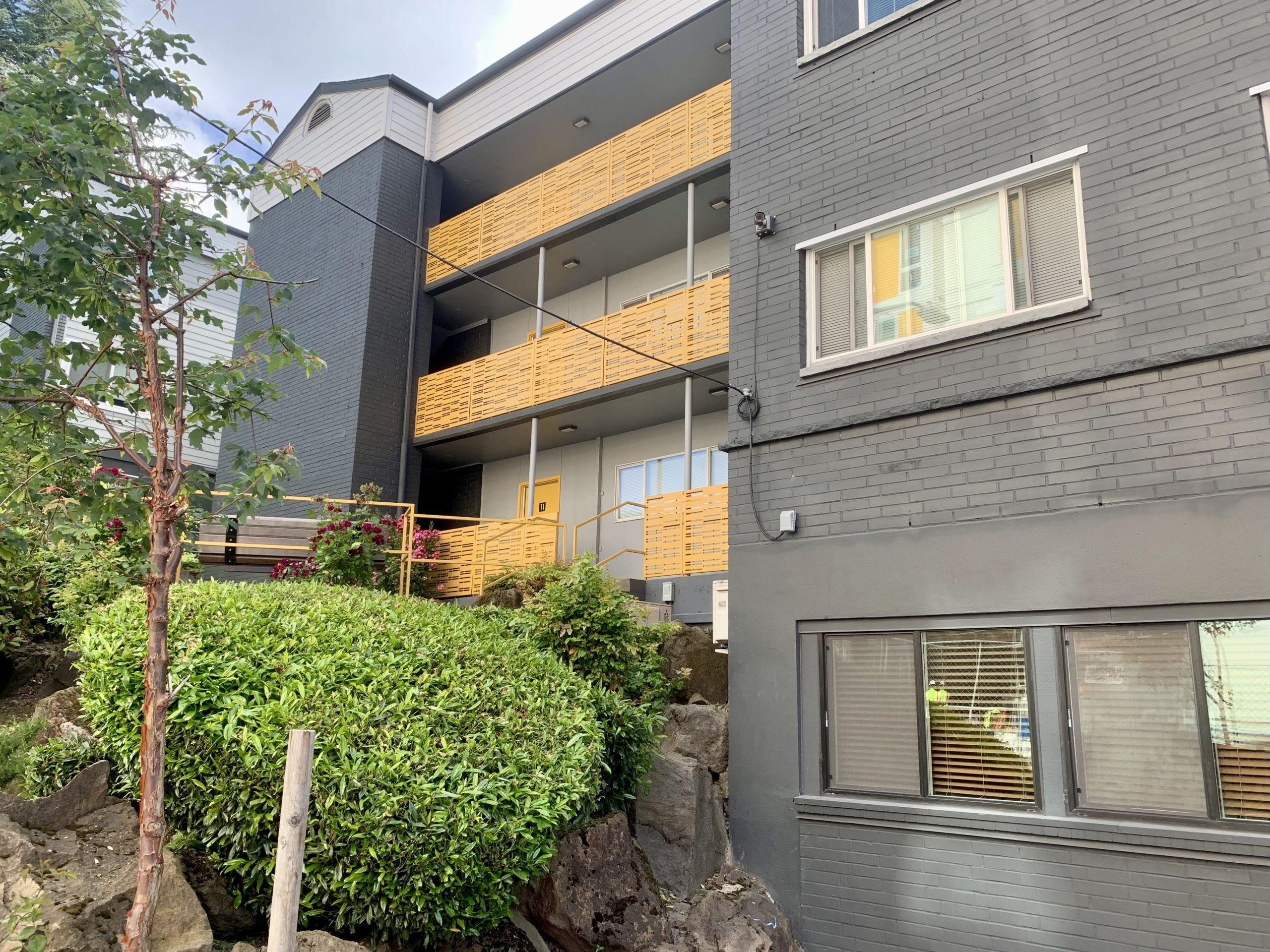
It has been a big week for housing news in Seattle! This edition of housing notes will discuss news related to Amazon’s Housing Equity Fund, Social Housing Initiative 135, and the JumpStart progressive payroll tax.
Amazon’s Housing Equity Fund to invest $23 million in affordable housing in Seattle
Amazon has announced that Mt. Baker Housing, El Centro de la Raza, and GardnerGlobal Inc. are the first Seattle affordable housing developers to receive support from its Housing Equity Fund, which has pledged a $23 million investment to support the creation or preservation of 568 affordable homes. Launched in 2021, the fund has provided $1.2 billion in low cost loans and grants for affordable housing in communities across the Puget Sound region, as well as in the Arlington, Virginia region, and Nashville, Tennessee, according to a press release by the company. Overall, the fund aspires to invest $2 billion in creating and preserving 20,000 affordable homes in these locations.
News of the addition of Seattle to the roster was unveiled at a press event on the steps of Mount Baker Village, which will receive a $7.7 million low-rate loan from Amazon to help pay for site maintenance to preserve the affordability of its 156 homes. Seattle Mayor Bruce Harrell, as well Catherine Buell, director of the Amazon Housing Equity Fund, and many representatives from the City of Seattle, regional affordable housing developers, and community were in attendance.
“Amazon believes that the private sector has an important role to play in housing affordability,” Buell said.


Mt. Baker Housing, which owns the Village, also received another $7.5 million low cost loan for its Grand Street Commons project, located near the Judkins Park Link light rail station, which will help fund 204 affordable homes in the 700 unit development. Grand Street Commons is slated to open in summer of 2024.
These contributions to affordable housing in the Mount Baker neighborhood follow the controversy Amazon sparked in the Mount Baker neighborhood in spring of 2021 when initial plans for a new Amazon warehouse and parking lot were filed at the Mount Baker Lowe’s and former Pepsi Plant, which had long been identified for housing-focused redevelopment rather than another warehouse because of its proximity to light rail and other amenities like schools and retail.
El Centro de la Raza was awarded a $3.5 million grant for its El Centro Columbia City project, which is expected to open 87 homes in summer of 2024 as well, and GardnerGlobal Inc. was selected for a $4.5 million grant for its 23Calvary affordable housing development in the Central District near the newly opened Midtown Commons development at 23rd Avenue and Union Street.
Jaebediah Gardner, founder of GardnerGlobal Inc., thanked Amazon for the grant donation, describing how it has taken years for the 23Calvary project to advance to where it is today. The 122 home affordable apartment building is moving forward in the City’s design review process and will appear before the Central Area Land Use Committee next Monday, June 27th. As a result of the $4.5 million grant, GardnerGlobal Inc. was also able to acquire the remainder of the land owned by Mount Calvary Church, which is located directly across the street. The company is now hoping to eventually create over 250 affordable homes across both sites.
In her remarks, Buell said that Amazon is “intentional about who we select as development partners” and is prioritizing support for development firms led by people of color through its Housing Equity Accelerator program.
News of support for affordable housing in Seattle comes on the heels of investments Amazon has already made in Bellevue, where seven different projects totaling 1,157 homes have received funding from Amazon since 2021. According to the company, this has resulted in a 20% increase in affordable multifamily homes in Bellevue.
Amazon also announced plans to add 10,000 jobs in the Eastside this summer to go along with more than 50,000 that are already in the Seattle metropolitan region, and the job growth already seems to be a contributing factor in the skyward ascent of Eastside housing prices. As a whole, job growth continues to outpace housing development on the Eastside, a phenomenon Urbanist contributor Ryan DiRaimo has called a “ticking time bomb.”
Social Housing Initiative 135 qualifies for November ballot
House Our Neighbors has announced that they submitted 29,552 signatures in support of Social Housing Initiative 135 to the Seattle City Clerk on June 22, exceeding the number required to get the initiative on the November ballot. While the signatures will still need to pass through the City’s validation process, the coalition has time to gather more signatures should any problems arise, although with the comfortable margin in place that appears unlikely.
To recognize the event, House Our Neighbors held a press conference in which speakers highlighted the dire nature of Seattle’s affordable housing crisis and spoke about social housing as a forward thinking solution. While the mixed income model of social housing proposed in Initiative 135 is widely used in other parts of the world, it remains rare in the United States, and during her remarks, co-chair Tye Reed described the challenges that come with pursuing a new method of creating affordable housing.
We knew that if we tried go a route through people who are elected, people who are so far from the problem, that we just wouldn’t get what we needed… it took months of being told no, being told to wait until 2023, being told we could use the the current structure, that we should use philanthropic dollars. we were told a lot of different things about how this would go.
I think a lot of people didn’t believe in us, but the most encouraging thing was immediately hundreds of people, thousands of people did believe in this movement.
Tye Reed, Co-chair of the House Our Neighbor’s Coalition
The next step will be for the coalition to raise awareness among likely voters about how the social housing model would work under Initiative 135. Today most affordable housing is available to people earning 60% or less of area median income (AMI) because of federal tax credit requirements; however, social housing created by this new model would be mixed income and open to people earning from 0 to 120% of AMI. The rental income would open the possibility of bonding that could generate income for future affordable housing investments an effort to create a more self-sustaining model.
There is a lot to learn about social housing and Initiative 135. Check out The Urbanist’s full length article and podcast episode for a more detailed introduction.
Seattle’s progressive payroll tax withstands legal challenge
The Washington State Court of Appeals has upheld Seattle’s progressive payroll tax, JumpStart, as valid in a lawsuit that had been brought forward by the Seattle Metropolitan Chamber of Commerce.
In their lawsuit, the Chamber alleged that the payroll expense tax was an unconstitutional tax of employee wages under the Cary v. Bellingham decision passed by the Washington Supreme Court back in 1952 after the City of Bellingham approved an ordinance requiring all workers in the city to apply for a license and pay a one tenth of one percent tax on their earnings.
The Chamber contended that the JumpStart tax was an “illegal tax on the right to work for wages” established under Cary. However, that assertion first dismissed in a trial court ruling and then now rejected a second time by the Court of Appeals, which found that payroll tax was valid under the right of a jurisdiction to tax businesses.
The City’s payroll expense tax is readily distinguishable from the tax imposed In Cary [In WHich] the income based tax was levied on the employee, while the payroll tax here is levied on the business itself. The payroll expense tax applies to the privilege of engaging in business, not an employee’s right to earn a living by working for wages.
Washington State Court of Appeals, Greater Seattle Chamber of Commerce v. City of Seattle
Seattle Councilmember Teresa Mosqueda (At Large), sponsor of the JumpStart legislation, expressed her satisfaction with the court’s ruling in a press release. “JumpStart has been — and thanks to today’s victory — will continue to be, one of Seattle’s biggest tools to address our city’s most urgent problems,” Mosqueda said.
JumpStart has emerged as a powerful tool for raising funding for affordable housing in Seattle. In the 2022 budget, the City was able to allocate a record breaking $194 million in affordable housing, with $97 million coming directly from JumpStart progressive tax revenue.
Natalie Bicknell Argerious (she/her) is a reporter and podcast host at The Urbanist. She previously served as managing editor. A passionate urban explorer since childhood, she loves learning how to make cities more inclusive, vibrant, and environmentally resilient. You can often find her wandering around Seattle's Central District and Capitol Hill with her dogs and cat. Email her at natalie [at] theurbanist [dot] org.


